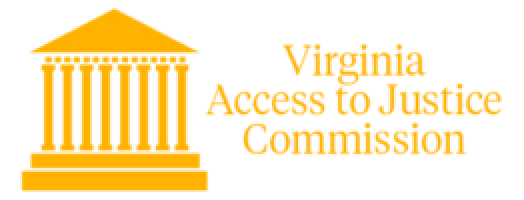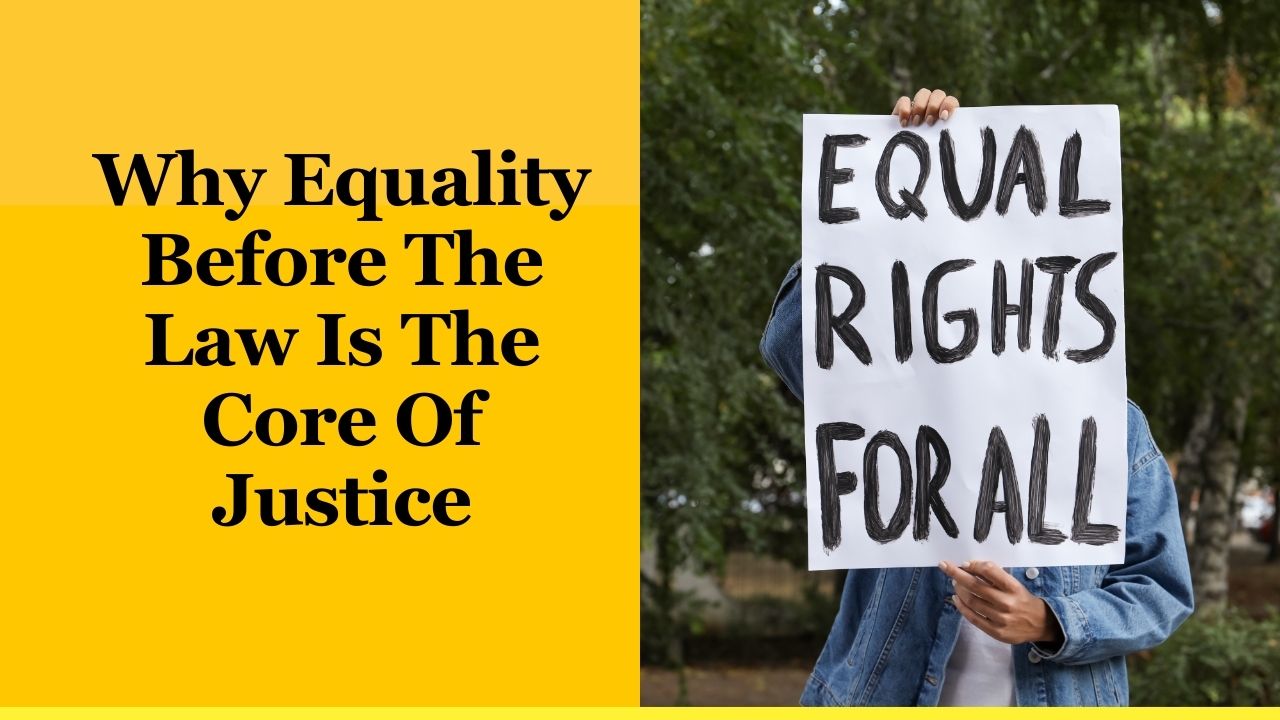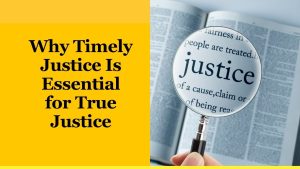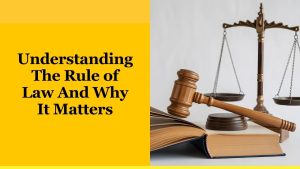Equality before the law is not just a legal phrase — it is the cornerstone of any fair and functional justice system.
It ensures that all individuals, regardless of wealth, race, gender, religion, or status, are treated the same under legal frameworks. Without it, justice becomes selective, trust in legal systems erodes, and the rule of law collapses.
In today’s world, debates about justice often center on policing, court processes, sentencing, and access to legal aid. Yet at the heart of each debate is the same principle: whether everyone is afforded equal treatment under the law.
This article explores what equality before the law really means, why it is crucial for justice, and how societies can strengthen it in practical ways.
What Equality Before the Law Means
Equality before the law means that no one is above the law and no one is beneath its protection. It establishes that laws apply to all citizens equally and that legal rights are not determined by personal characteristics or social position.
Core Elements of Legal Equality
| Element | Purpose |
|---|---|
| Equal Legal Rules | Laws must apply equally to everyone without favoritism or discrimination. |
| Equal Legal Protection | All individuals must receive the same protection and remedies under the law. |
| Equal Access to Justice | Everyone must be able to access courts and legal aid if needed. |
| Equal Accountability | Violations of law must have consistent consequences, regardless of who commits them. |
| Impartial Adjudication | Judges, juries, and decision-makers must be neutral and unbiased. |
These components ensure that justice is not influenced by wealth, identity, or connections.
Why Equality Before the Law Is the Core of Justice
1. It Protects the Rule of Law
The rule of law depends on the idea that laws govern society, not individuals’ personal power. When laws apply equally, they gain legitimacy.
People comply voluntarily when they trust that justice is impartial. If the law favors some while punishing others for the same behavior, it ceases to be law and becomes oppression.
2. It Upholds Human Dignity
Equal treatment affirms the inherent dignity and worth of every person. Treating all people as legal equals shows that the system values their rights and recognizes their humanity.
This principle builds mutual respect between citizens and the state.
3. It Builds Public Trust
Citizens are more likely to respect and cooperate with a justice system they believe is fair and unbiased. Unequal treatment breeds resentment, mistrust, and civil unrest. Equal justice strengthens social cohesion and confidence in democratic institutions.
4. It Prevents Abuse of Power
Unequal laws allow those in power to target opponents and shield allies. Equality before the law limits corruption and abuse by ensuring that everyone is held to the same standards, even those who govern.
5. It Ensures Fair Outcomes
When everyone follows the same rules, legal processes produce predictable and consistent outcomes. This reliability encourages businesses, investors, and individuals to operate confidently, knowing justice is impartial.
Key Areas Where Equality Before the Law Must Be Enforced
1. Pretrial Justice
- People awaiting trial must not be treated differently based on income or social status.
- Bail systems should be based on risk to public safety, not wealth.
- Legal presumption of innocence applies equally to everyone.
2. Sentencing Consistency
- Similar crimes committed under similar circumstances should result in similar penalties.
- Sentencing guidelines and oversight help prevent disparities based on race, class, or gender.
- Judges must justify sentences with clear legal reasoning.
3. Access to Legal Representation
- Legal aid ensures low-income individuals can defend their rights effectively.
- Without access to lawyers, formal equality is meaningless because rights cannot be enforced.
- Public defense systems must be adequately funded and accessible to all communities.
4. Civil Justice Equality
- Equality is not just criminal; civil law also affects housing, employment, family, and benefits.
- Simplified forms, remote hearings, and courthouse assistance help ensure equal access for all.
- Discrimination in civil courts must be actively monitored and addressed.
5. Equal Protection from Discrimination
- Laws must protect everyone equally against harassment, discrimination, and abuse.
- Anti-discrimination laws should apply consistently regardless of the victim’s identity.
- Agencies must enforce these protections impartially and promptly.
Real-World Challenges That Threaten Equality Before the Law
Even where constitutions promise equality, gaps still exist:
- Socioeconomic Barriers – Wealthier individuals can afford better legal representation, while poorer defendants may lack resources to defend themselves.
- Systemic Biases – Implicit bias can influence decisions by police, prosecutors, judges, and juries.
- Geographic Inequality – Access to legal services and courts is often worse in rural or marginalized areas.
- Complex Legal Processes – Ordinary people may struggle to understand their rights or navigate the system without help.
- Selective Enforcement – Authorities sometimes focus enforcement on certain groups more than others, undermining fairness.
Recognizing these barriers is the first step to correcting them.
Strengthening Equality Before the Law: Practical Strategies
Ensuring legal equality requires structural reforms, cultural change, and sustained oversight. Below are strategies that governments, courts, and communities can use.
1. Expand Legal Aid and Representation
- Increase funding for public defenders and legal aid organizations.
- Provide multilingual services and disability accommodations in courts.
- Use legal navigators or paralegals to guide unrepresented individuals through court processes.
2. Standardize and Monitor Sentencing
- Implement clear sentencing guidelines to reduce judicial disparities.
- Require courts to publish sentencing data to monitor for patterns of bias.
- Offer training to judges and prosecutors on unconscious bias and equitable decision-making.
3. Reform Pretrial Detention Practices
- Replace wealth-based bail with risk-based assessments.
- Expand pretrial services like court-date reminders and check-ins.
- Limit pretrial detention only to those who pose clear risks to public safety.
4. Improve Civil Justice Accessibility
- Simplify legal forms and make them available in plain language.
- Offer remote and after-hours court sessions to increase access.
- Establish community legal clinics in underserved areas.
5. Ensure Transparency and Accountability
- Publish court performance and case outcome data to the public.
- Create independent oversight bodies to review misconduct or discrimination complaints.
- Strengthen ethics enforcement for legal professionals and law enforcement officers.
How Equality Before the Law Strengthens Society as a Whole
1. Economic Stability
- Predictable legal systems attract investment and foster business growth.
- Fair enforcement reduces corruption and promotes competition.
2. Social Cohesion
- Equal treatment reduces resentment between groups and enhances national unity.
- It creates shared confidence that everyone’s rights are protected.
3. Democratic Legitimacy
- Democracies depend on public faith in the fairness of their institutions.
- Equal justice reinforces trust in elections, legislatures, and courts.
4. Public Safety
- Communities that trust legal institutions are more likely to cooperate with law enforcement.
- Fair systems reduce cycles of crime by treating people with dignity and consistency.
Core Benefits of Equality Before the Law
| Aspect | Impact of Equality | Impact of Inequality |
|---|---|---|
| Justice System | Consistent rulings, public trust, fair outcomes | Arbitrary judgments, corruption, mistrust |
| Society | Social cohesion, reduced discrimination | Social division, resentment, conflict |
| Economy | Encourages investment, reduces corruption | Deters investment, encourages favoritism |
| Democracy | Strengthens legitimacy and rule of law | Undermines public faith, weakens democratic institutions |
| Public Safety | Fosters cooperation and compliance | Reduces cooperation, increases unrest |
Future Outlook: Making Legal Equality Real by 2030
- Digital Access – Expanding online legal tools can reduce access gaps.
- AI Oversight – As technology enters courts, algorithms must be audited for bias.
- Global Standards – International cooperation can promote uniform human rights protections.
- Public Education – Teaching legal rights in schools empowers future generations to demand fairness.
- Data Transparency – Publishing equity-focused performance metrics keeps systems accountable.
If these actions are prioritized, legal equality can become not just a constitutional promise, but an everyday reality.
Equality before the law is the foundation of justice. It ensures that laws are not tools of oppression or privilege but instruments of fairness. It protects dignity, upholds democracy, builds trust, and strengthens public safety.
Where equality exists, justice systems thrive and societies prosper. Where it falters, rights become hollow promises.
By expanding legal access, standardizing sentencing, reforming pretrial practices, and increasing transparency, societies can move closer to the ideal of true equality before the law — ensuring that justice serves everyone, not just the powerful.
FAQs
Why is equality before the law more important than just having laws?
Because laws mean little if they are applied unevenly. Equal enforcement ensures laws protect everyone and hold everyone accountable.
How does legal inequality harm society?
It erodes trust, encourages corruption, fuels social division, and undermines economic and democratic stability.
What’s the quickest way to improve legal equality?
Improving access to legal representation is the fastest way to make legal rights real for those who currently cannot use them.




